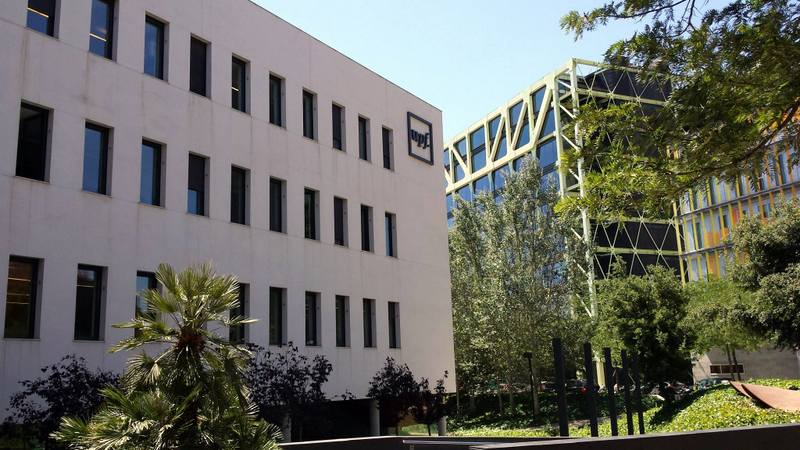Two UPF projects receive grants from the Google Faculty Research Awards
One is for Xavier Serra and Eduardo Fonseca, winners for the second time in a row, and the other for Gergely Neu, a researcher with the Department of Information and Communication Technologies. Of the 158 winning projects, two are of UPF, one of the Polytechnic University of Catalonia, and one of the University of the Basque Country.

The Google Faculty Research Awards programme awards grants for top-level technical research in computer science, engineering and related fields. It is an annual call open to submissions from the fields of computing and related topics such as quantum computing, machine learning, algorithms, natural language processing, etc. The scholarships cover the registration of a graduate student and offer professors and students the opportunity to work directly with researchers and engineers from Google.
For the 2018 call, Google received 910 proposals from 40 countries and more than 320 universities. Following the relevant reviews by experts and the committee, there were 158 winning projects, of which two are of Pompeu Fabra University (UPF), one of the Polytechnic University of Catalonia (UPC) and one of the University of the Basque Country, the only Spanish universities that have achieved funding. This year the subject areas that have received the most support are human-computer interaction, machine learning, machine perception and systems.
158 projects were selected, two of which are of Pompeu Fabra University (UPF), one of the Polytechnic University of Catalonia (UPC) and one of the University of the Basque Country, the only Spanish universities that have achieved funding
For the second time in a row
Xavier Serra, coordinator of the Music Technology Group (MTG) and principal investigator of the project, together with team member Eduardo Fonseca, who developed the proposal under Serra’s leadership, have received this award for the second time in a row, this time in the field of Machine Perception. Open, large and varied datasets are essential to advance in research on sound event recognition (SER). Serra and Fonseca work on SER and propose the development of a sustainable ecosystem that fosters open research in this area. “In this ecosystem, the use of machine learning approaches (for automatic segmentation and active learning) allows us to manage the software in a more scalable fashion, optimizing human resources”, say Serra and Fonseca.
Improving the theoretical understanding of the most effective algorithms
Gergely Neu, a researcher with the Department of Information and Communication Technologies (DTIC) at UPF is one of the winners in the field of Machine Learning and Data Mining. He states that “last year I spent three months on the programme of Google professors in Zurich (Switzerland)”. His research topic is Reinforcement Learning (RL). In machine learning, RL is receiving a lot of attention because of the spectacular results obtained by its algorithms in solving difficult tasks, with a similar-to-human level of resolution. “Despite these successes, progress in this field is still mainly empirical, with little theoretical understanding of the most effective algorithms”, Neu states. In fact, most deep RL methods used in practice are direct adaptations of classic RL algorithms without directly involving the approximation capabilities of the underlying deep networks”, he adds. The project aims to address this problem by developing new tools that will lead to a deeper theoretical understanding of the existing methods.
